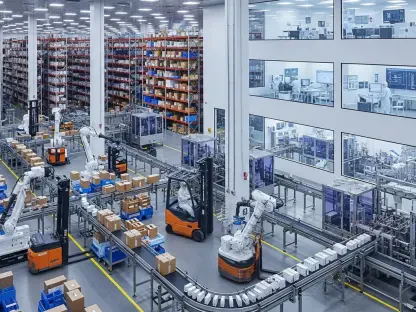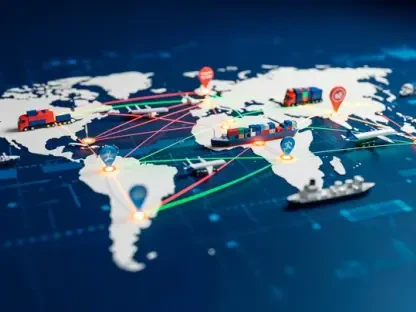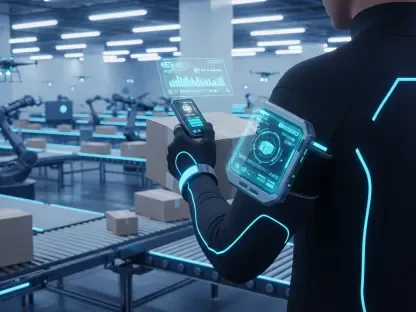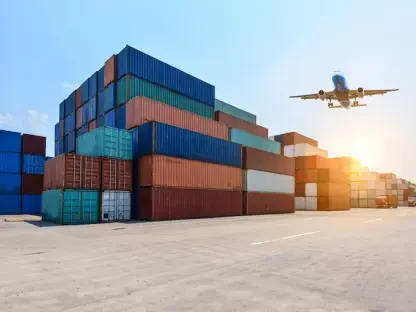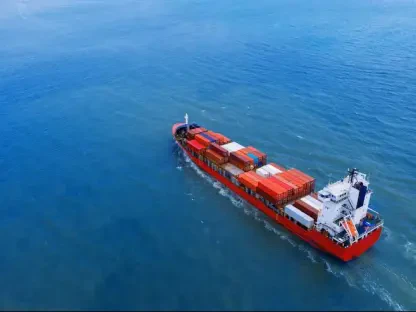The German newspaper industry is grappling with significant challenges, including declining print subscriptions and escalating delivery costs. Boxit, a joint venture between the Fiege Group and Frankfurter Allgemeine Zeitung, is leading the charge to transform last-mile delivery into a profitable business model. By leveraging AI and embracing sustainability, Boxit aims to navigate the evolving landscape and set new standards in the industry. This vision involves implementing advanced technologies and maintaining an entrepreneurial spirit to ensure the company remains competitive and effective in its operations, addressing both current and future demands of the market.
Embracing Technological Innovation
Boxit handles over 100 million deliveries annually, serving more than 100 titles and covering 70% of German households. This extensive network provides a unique opportunity to explore new revenue streams within last-mile logistics. Christoph Schweiger, who manages media and mail activities within the Fiege Group, stresses the importance of recognizing market shifts early and investing in technology to stay competitive. Schweiger is a strong advocate for swiftly understanding and addressing customer preferences to avoid business failures and harness growth potential, particularly by leveraging the powerful capabilities of AI and robotics.
To improve efficiency, Boxit utilizes robots for pick-and-place operations and leverages AI, similar to e-commerce giants like Amazon Prime. Heavy investments in warehouse automation, with advanced machines from CMC, Sparck, and Beck, optimize material usage and streamline packaging processes. These technologies determine the appropriate packaging size and materials, creating and folding boxes automatically, thus addressing logistical challenges and adding value for customers. Schweiger believes that this approach not only enhances operational efficiency but also aligns with the evolving expectations of the market, ensuring that Boxit remains at the forefront of innovation within the industry.
Addressing Delivery Inefficiencies
Despite these advancements, last-mile delivery in Germany remains outdated in some areas, with labor shortages and poorly integrated systems contributing to inefficiencies. Some publishers resort to cost-cutting measures like optimizing routes and excluding less profitable households from delivery networks. However, Schweiger argues that a fundamental shift towards professionalism, optimized business structures, and sustainability is necessary for long-term success. He emphasizes that simply cutting costs is not a sustainable solution and that a more comprehensive approach is required to address these deep-rooted issues within the delivery system.
Several German companies are investing in emission-free delivery vehicles and new technologies, such as mobile apps that provide perfect route maps and live updates. These innovations improve delivery quality and timing, demonstrating that even smaller companies can compete against major players like DHL by creating unique selling propositions and thriving in their niches. The advent of these new technologies signifies a transformative period for the industry and highlights the importance of adaptability and investment in modernizing delivery infrastructures to meet rising consumer standards and regulatory requirements.
Integrating New Business Models
Schweiger outlines three essential elements for shaping the future of last-mile delivery: entrepreneurship, investment, and courage. He emphasizes the need for logistics departments to be seen as profit centers and for publishers to invest in infrastructure while embracing new business models and revenue streams. One promising approach is leveraging existing delivery networks to transport additional products, integrating parcels with early-morning newspaper routes. This strategy aims to create a more efficient and versatile delivery system, capable of handling various types of deliveries without significantly increasing operational costs.
This phased approach involves starting with products similar to newspapers, such as magazines and catalogs, before expanding into parcel delivery and fulfillment services. By building experience and optimizing workflows, companies can gradually convince their workforce of the long-term benefits, ultimately transforming their business models to meet modern demands. Such integration can provide a consistent revenue stream and ensure that existing delivery networks are used to their fullest potential, creating a synergistic effect that benefits both the companies and their clients.
Prioritizing Sustainability
Boxit’s commitment to sustainability is central to its strategy for overcoming industry challenges. As they revolutionize last-mile delivery, Boxit is dedicated to adopting practices that minimize environmental impact while enhancing operational efficiency. A focus on emission-free delivery vehicles and sustainable packaging materials is vital to this approach. By integrating these elements into the core of their operations, Boxit aims to not only meet but exceed the expectations of environmentally conscious consumers and regulatory bodies. Innovating with cutting-edge technologies and maintaining a forward-thinking mindset, Boxit is set to redefine success in the newspaper delivery industry through sustainable and efficient last-mile logistics solutions.


